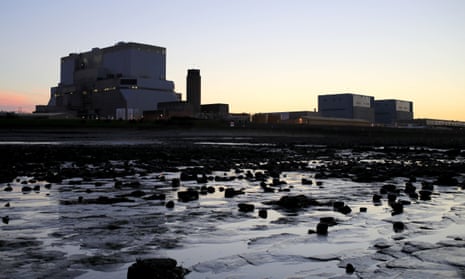The planned new nuclear power station at Hinkley Point in Somerset has been hit by another setback, with its developer EDF admitting the project may be further delayed.
The news came as the French energy group said a more advanced sister project at Flamanville in Normandy would now not start operating until 2018, at a cost of €10bn (£7.3bn). It was originally slated to open in 2005 and cost €3bn.
No definite schedule has been given for power to be switched on at Hinkley, but it means the £24.5bn facility, which still awaits EDF’s formal go-ahead, may not be ready by 2023, a date that has already been put back several times. A decision had been widely expected to come in October.
“Even though the final investment decision [FID] has been pushed back from the initial forecasts, the construction time will stay the same, which means that the commissioning date will be updated at the point when FID is made,” EDF’s chief executive, Jean-Bernard Lévy, said.
“We are in final discussions with the British government and our Chinese partners. We hope to make this final investment decision as soon as possible.” he said.
The latest problem follows continued speculation that China General Nuclear Power Corp and China National Nuclear Corp were pushing the UK government for concessions before committing to a cash investment at Hinkley.
Critics have repeatedly told the government that it was foolish to rely on a new generation of nuclear power stations to meet Britain’s energy crunch, because such huge projects have a record of coming in late and over budget.
